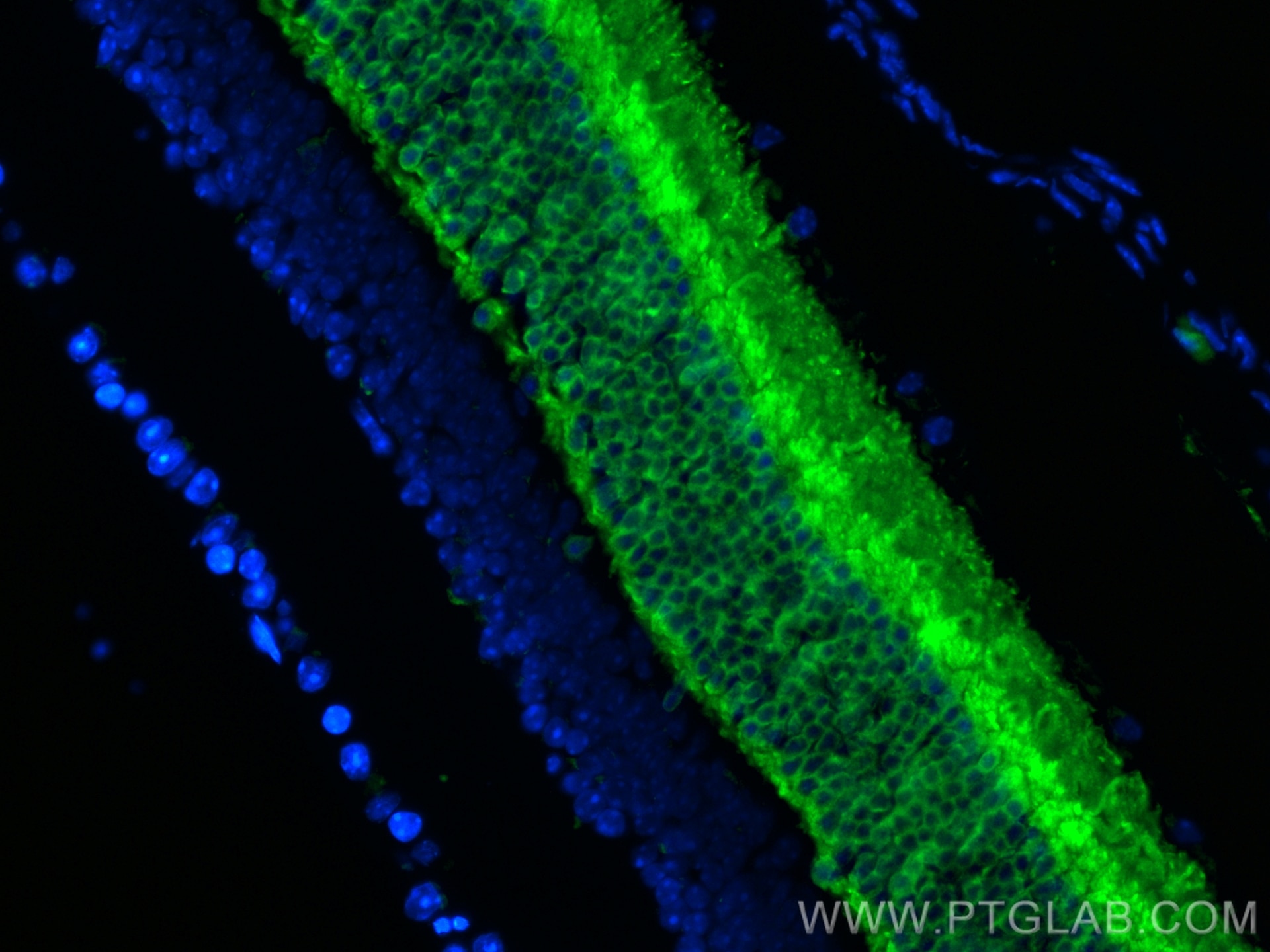Validation Data Gallery
Tested Applications
| Positive IF-P detected in | mouse eye tissue |
Recommended dilution
| Application | Dilution |
|---|---|
| Immunofluorescence (IF)-P | IF-P : 1:50-1:500 |
| It is recommended that this reagent should be titrated in each testing system to obtain optimal results. | |
| Sample-dependent, Check data in validation data gallery. | |
Product Information
CL488-10073 targets Recoverin in IF-P applications and shows reactivity with human, mouse, rat samples.
| Tested Reactivity | human, mouse, rat |
| Host / Isotype | Rabbit / IgG |
| Class | Polyclonal |
| Type | Antibody |
| Immunogen | Recoverin fusion protein Ag0119 相同性解析による交差性が予測される生物種 |
| Full Name | recoverin |
| Calculated molecular weight | 24 kDa |
| Observed molecular weight | 23 kDa |
| GenBank accession number | BC001720 |
| Gene Symbol | Recoverin |
| Gene ID (NCBI) | 5957 |
| RRID | AB_3672428 |
| Conjugate | CoraLite® Plus 488 Fluorescent Dye |
| Excitation/Emission maxima wavelengths | 493 nm / 522 nm |
| Form | Liquid |
| Purification Method | Antigen affinity purification |
| UNIPROT ID | P35243 |
| Storage Buffer | PBS with 50% glycerol, 0.05% Proclin300, 0.5% BSA , pH 7.3 |
| Storage Conditions | Store at -20°C. Avoid exposure to light. Stable for one year after shipment. Aliquoting is unnecessary for -20oC storage. |
Background Information
Recoverin, belonging to a family of the neuronal calcium sensor (NCS) proteins, has a restricted expression in retinal photoreceptors or neurons or neuroendocrine cells. It has been suggested to play a role in light and dark adaptation by regulating rhodopsin phosphorylation. Recently, it has been found that autoantibodies against recoverin (24 kDa) have been strongly associated with cancer -associated retinopathy (CAR) syndrome, a paraneoplastic disease of the retina. But functions of recoverin in cancer cells remain unknown.
Protocols
| Product Specific Protocols | |
|---|---|
| IF protocol for CL Plus 488 Recoverin antibody CL488-10073 | Download protocol |
| Standard Protocols | |
|---|---|
| Click here to view our Standard Protocols |
